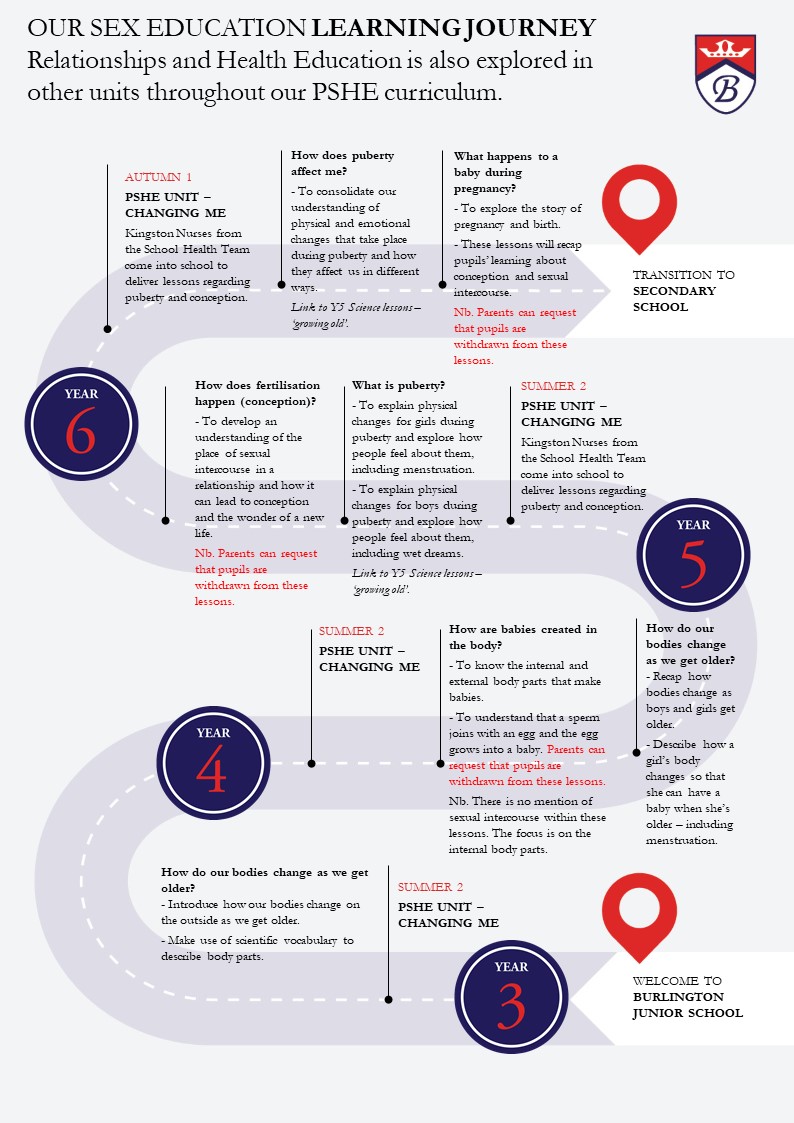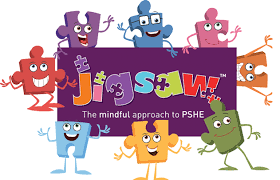Relationships, Sex and Health Education (RSHE)
RSHE (Relationships, Sex and Health Education) sits within the Personal, Social and Health Education (PSHE) Curriculum. High-quality, evidence-based and age appropriate teaching of RSHE supports children with emotional, social and cultural development, and involves learning about the important an important aspect of life: forming safe, positive and supportive relationships.
Statutory guidance from the Department for Education outlines what schools must teach within Key Stage Two. This includes teaching about the following themes:
| Relationships Education | Physical Health and Mental Wellbeing | Sex Education |
|
|
Primary schools should determine whether they need to cover any additional content on sex education to meet the needs of their pupils. Many primary schools choose to teach some aspects of sex education. Please scroll down to read more about how sex education is taught at Burlington Junior School. |
At Burlington Junior School, we make use of the Jigsaw programme to support our teaching of PSHE and RSHE. To find out more about this, please click on the icon below:
To find out more, please read our RSHE Policy, which you can find here.
To read more about the statutory guidelines for schools from the Department for Education, please click here.
Sex Education at Burlington Junior School
All pupils at Key Stage Two must be taught the aspects of sex education outlined in the primary science curriculum - this includes teaching about the main external parts of the human body, how it changes as it grows from birth to old age, including puberty, and the reproductive process in some plants and animals.
In Key Stage Two, within the National Curriculum for Science, pupils must be taught to:
- Describe the life differences in the life cycles of a mammal, an amphibian, an insect and a bird. (Living things and their habitats - Year 5)
- Describe the life process of reproduction in some plants and animals. (Living things and their habitats - Year 5)
- Describe the changes as humans develop to old age. (Animals, including humans - Year 5)
According to statutory guidance from the DfE, the school is free to determine whether pupils should be taught sex education beyond what is required of the National Curriculum. At Burlington, we do teach pupils sex education beyond what is required of the science curriculum as part of learning in PSHE lessons. The age and development of pupils is always considered when delivering sex education and we make use of age-appropriate resources from the Jigsaw scheme of work when planning and preparing materials for pupils.
Please see the learning journey below for more information about what is covered as part of pupils' learning about puberty and reproduction. As a school, we are deeming the content which is highlighted in red text as sex education because it covers human reproduction. Children can be withdrawn from lessons which cover the sections highlighted in red text. Please see our RSHE Policy for more information.










